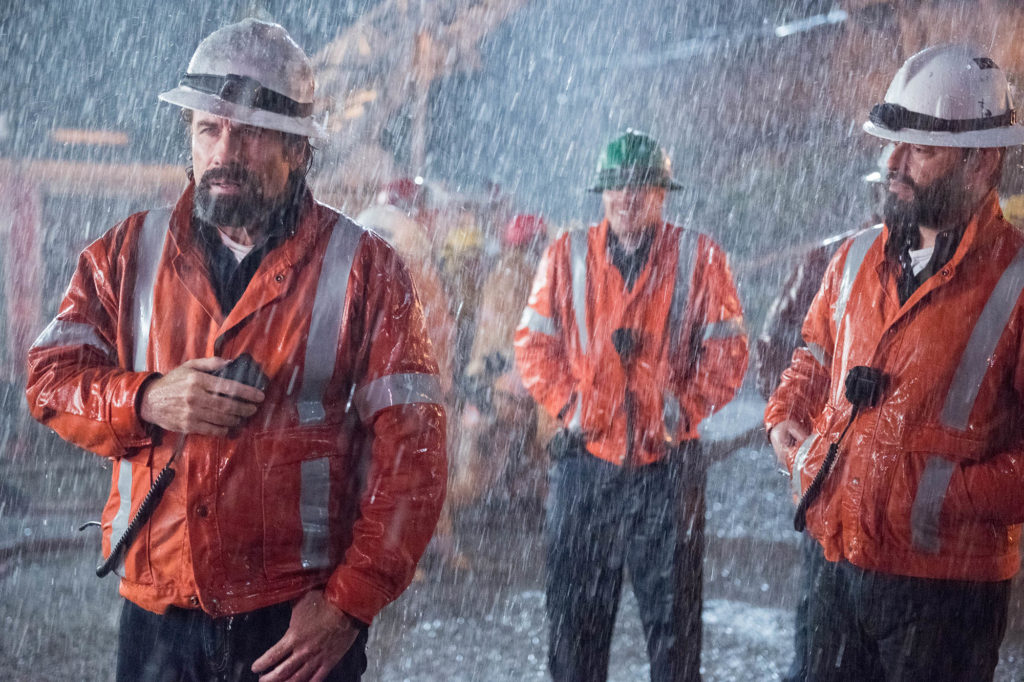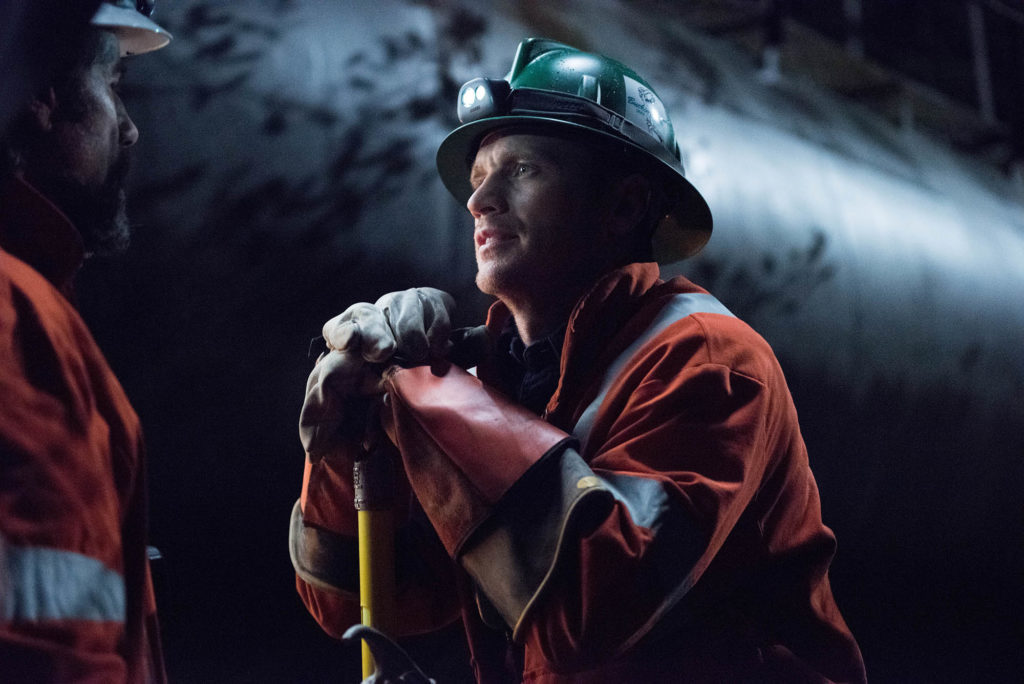On his company voicemail, Chad Dubea asks callers to leave a message and to “please thank a lineman. Without them, there wouldn’t be any power. And thank a mechanic, as well. Without them, your trucks wouldn’t be running.”
Whenever he can, Dubea champions line crews’ courageous work and daily sacrifices, especially during major storms and disasters. In 2013, he funded the startup of Fallen Linemen Organization, a charity that raises money for wounded crews and their families.
The year before, his fleet maintenance company co-sponsored Drivin’ for Linemen 200, a NASCAR truck race at Gateway Motorsports Park in St. Louis.
Now, Dubea, 39, can add “executive producer of a Hollywood movie” to his linemen tributes.
Released to theaters in November 2016, Life on the Line, an action drama starring John Travolta, tells the story of linemen, the hazards and the profession’s hidden side: the toll that the job’s long hours take on families.
It is available for streaming through services such as Amazon video, Vudu, Google Play and iTunes, and is scheduled for release through Netflix and other outlets in early February.
“It’s the greatest job in the world, and I want to give back to an industry I love,” Dubea said of being a lineman.
He came by it through bloodlines; his father and uncle worked in the electric utility industry.
“Men don’t like to talk much about our jobs,” said Dubea, who lives near Beaumont, Texas. The movie gives families of line workers and the general public “a small glimpse into what linemen go through while on the job or away from home.”
WORKING WITH TRAVOLTA

Dubea sold his power line construction company to help finance the $12 million film. Through business connections, he met screenwriter Primo Brown who went on to write the film’s original script. The writer researched the industry by attending safety training and compliance meetings at Dubea’s company.
“I learned what it takes to become a lineman and understood how important safety is on the job,” said Brown. “Being a lineman is an extremely hazardous occupation that the brave individuals that keep our lives energized have my utmost respect.”
Dubea’s experience had flashes of glamour. On a moment’s notice, he flew to the Cannes Film Festival in France, where he lunched with Hollywood film executive Harvey Weinstein in hopes of landing a distributor. He also met the movie’s star.
“John Travolta is extremely sincere. Anyone he met, he’d write or call back. He really gained an appreciation for what these men, women and families deal with on a regular basis,” said Dubea.
But a good part of Dubea’s experience was fraught with tedium and frustration.
“Making a movie is very boring. They’ll shoot one scene and they’ll redo it several times. When you see the final movie, you can’t even tell that one part was shot at a different time,” he said. “They shot the end of the movie on the very first day to work around John’s schedule.”
BREAKING SCRIPT

Critics were not kind to the 97-minute movie shot in Vancouver, Canada. The New York Times called it “cliché-clogged, utterly predictable” and “plodding.” It got a 44 percent positive reception from audiences on the Rotten Tomatoes website.
Dubea agrees, noting that the movie is heavy on drama and detours sharply from the original script.
“Hollywood reviews recognized the potential, but they said we missed it, which I agree with,” said Dubea.
“For anyone not in the industry, it’s hard for them to really understand and appreciate what goes on.”
Still, Dubea has no regrets. A plug at the end of the movie promotes the Fallen Linemen Organization, and he did accomplish what many dream about: making a Hollywood movie.
“I’m proud that I got this opportunity to bring the industry to life on the big screen. I hope we can all join together … to provide a safer, more rewarding industry for all.”
Victoria A. Rocha is a staff writer at NRECA.